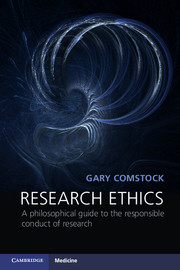Book contents
11 - Recognize property
Published online by Cambridge University Press: 05 February 2013
Summary
Introduction
Graduate students may wonder who owns the data they produce and who is responsible for mistakes in articles they help to author. Intellectual property refers to a set of rights that convey exclusive ownership of intangible assets to the people who create them. The assets in question include such things as artistic designs, scientific discoveries, and research publications. Intellectual property protects the rights of creators through legal instruments such as copyrights and patents. This chapter explores these issues, addressing the possibility of one’s owning data, new knowledge, coauthored papers – even our own DNA.
Who owns your data?
Start with the question of whether students and postdocs own the data they generate. For example, suppose Sami is a postdoctoral fellow in a lab involved in a clinical trial testing a new implantable device with the potential to prevent heart arrhythmia. The lab’s Principal Investigator has been supported by the National Institutes of Health. If the lead investigator is interested in patenting the machine, she may assemble the group for a discussion of each one’s rights in the event that the device is patented. She might explain that in the Bayh-Dole Act of 1980, the US Congress clarified the fiduciary relationship between public universities, taxpayer-supported scientific granting agencies, and individual researchers.
- Type
- Chapter
- Information
- Research EthicsA Philosophical Guide to the Responsible Conduct of Research, pp. 202 - 217Publisher: Cambridge University PressPrint publication year: 2013



